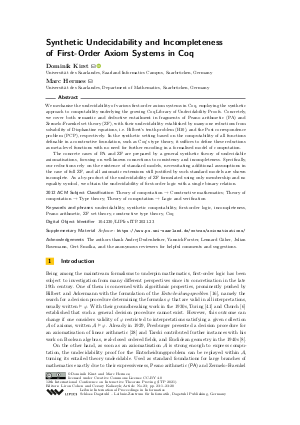LIPIcs.ITP.2021.23.pdf
- Filesize: 0.76 MB
- 20 pages

 Creative Commons Attribution 4.0 International license
Creative Commons Attribution 4.0 International license









































Feedback for Dagstuhl Publishing